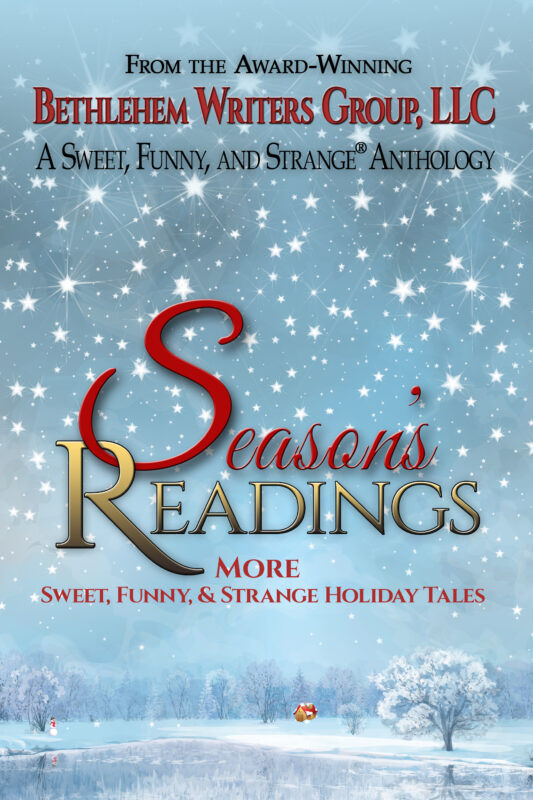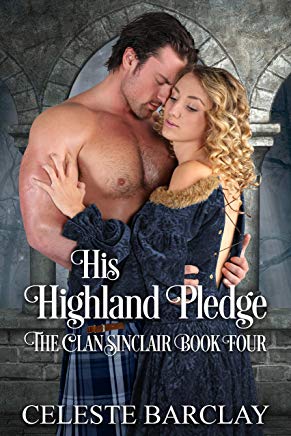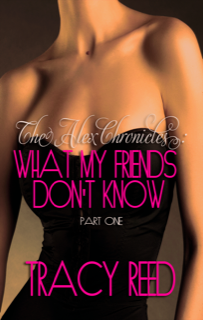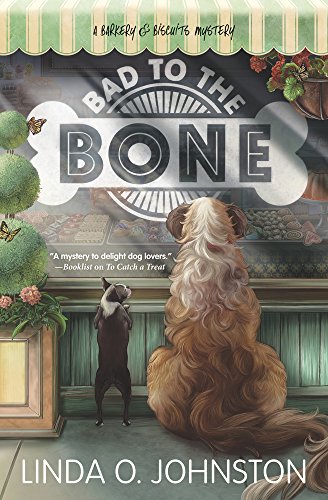Novelists! Writing a Script? Read This
July 15, 2013 by A Slice of Orange in category Archives tagged as budgets, screenwriting, scripts
I’ve written 28 books. I am a USA Today and Amazon best selling novelist. I worked with New York publishers for 25 years. I launched an indie career three years ago. I have taught writing at the UCLA Writers Program, conferences and lectured to writing groups. I thought I was pretty savvy. I thought I could write anything. Then I met my Waterloo. I wrote a screenplay. Actually, I wrote two.
My first one was an original romantic comedy, Saving Seymour, and my second a psychological thriller based on Keeping Counsel, my USA Today bestseller. Both are in development, both have attachments, but the first one almost sent me to the cliff. Generally, what I learned during the process of writing Saving Seymour is as follows:
- Writing a screenplay is one of the most difficult things a writer can do.
- Listen to your producer if you’re lucky enough to have one. He/she truly does know what he/she is talking about even though they don’t write.
- When you’re done, don’t buy your dress (or rent your tux) for the red carpet. In the years it takes to actually produce a movie your tastes are bound to change.
By the time I wrote my second script, I learned a few specific things that made the transition from novelist to screenwriter a lot less crazy making. Here are the top five tips:
- Be focused. You have minutes to establish whose story it is and the tone of your script. The leisure of a novelist’s scene setting is out the window. Know who your hero is, what the arc is, where the story takes place and what is critical to the telling of the tale.
- Be brief. Keep direction to a minimum. Your job is to communicate the story with just enough force, intelligence and excitement that director and actors can interpret that story visually and orally.
- Be budget conscious. Okay, you’re not a line-producer, but you can make a difference as to whether producing your movie is attractive for investors. Keep set pieces to a minimum and you not only streamline the story, you streamline the budget.
- Be hyper-aware of dialogue. Dialogue needs to be natural, informative & evocative with an eye toward time conservation. Choose your words carefully. Rethink sentence structure. Tighten, Tighten. The reader of a book loses herself in dialogue; a moviegoer will be lost if you don’t get to the point.
- Show-don’t-tell. A sense of urgency can be communicated by showing a car speeding away than through dialogue urging a character to hurry. If there is a place where a visual will communicate more than dialogue, use it.
Visit me at: http://www. Rebeccaforster.com. Look for my books on Amazon.com (print & digital), iBookstore, Barnes & Nobel.com, etc. etc. (digital),or Audible.com. I’ll let you know the minute I get my dress for the premiers of Saving Seymour and Keeping Counsel. In the meantime, happy writing; stay sane.
0 0 Read moreA Funny Thing Happened on the way to the Loo in Atlanta by Jina Bacarr
July 11, 2013 by A Slice of Orange in category Archives tagged as 2013, Atlanta, bathroom, convention, Cosmo, Georiga, Harlequin, honey, hotel, loo, naked, Nora Roberts, October, Red-Hot Reads, Ritz Carlton, rose, RWA, sushiNo girl forgets her first.
As in her first RWA conference. Mine was Atlanta 2006. Ah, yes, I still remember the Harlequin Party at the Ritz Carlton and the meet-up with the OCC crowd. The boxes and boxes of books stacked in conference rooms, waiting to be opened. The great speech Nora Roberts gave that year.
And my hotel room.
The toilet didn’t work. There I was, just off the Atlanta Link shuttle, exhausted from the long flight, bags in my room, shoes off, when I had to wait for maintenance…
And wait…
And…
Like I said, you remember your first.
Hopefully everyone’s loo is in good working order at this year’s national conference once again being held in Atlanta July 17-20th, but I can’t help but chuckle when I look back at my experience at RWA 2006.
Here’s the video I shot of my bathroom saga:
Do You Have an Email Newsletter? by Kitty Bucholtz
July 9, 2013 by A Slice of Orange in category Archives tagged as Author promotion, It's Worth It, Kitty Bucholtz, Tim Grahl, Unexpected SuperheroWith my new book, Unexpected Superhero, out last month, I am reading the perfect marketing book. It’s called Your First 1000 Copies by Tim Grahl. I’ve been following Tim via his company, Out:think, for a year or more. The company works with writers to sell more books and become more successful.
The book came out two weeks ago and I’m halfway through it. So far, the most compelling piece of information is the incredibly strong argument for writers to have an email newsletter. And not just to have one (I sent out my first newsletter two weeks ago! Woo-hoo!), but to have a robust list, focusing more on email followers than Facebook or Twitter followers.
One of Tim’s examples is of an author whose analytics show that for every book she sold via Facebook and Twitter posts, she sold fifty due to her email newsletters. Fifty! Tim also reminds us that no matter what is happening with the various social media outlets, we will always have the contact information we collect via our newsletters. If Facebook changes this or that policy, if Twitter makes a change, we can lose contact with all of our fans. Snap! Just like that.
The other thing Tim emphasizes several times is that our newsletters need to be “relentlessly helpful.” Think about that. Relentlessly helpful. What does that mean to you? More importantly, what does that mean to your readers? What kind of information would be in my newsletter that would cause subscribers to not only read every issue, but hit the Buy Now button when I have a new book out? What kind of newsletter would do that with your readers?
If you’re looking for a good book on marketing your new book, I think you should try Your First 1000 Copies. I’m getting a lot out of it, and I think you will, too.
Kitty Bucholtz decided to combine her undergraduate degree in business, her years of experience in accounting and finance, and her graduate degree in creative writing to become a writer-turned-independent-publisher. Her first novel, Little Miss Lovesick, came out in 2011. Her new novel, Unexpected Superhero, book one in The Adventures of Lewis & Clarke humorous urban fantasy series, is now available in print and ebook format. Love at the Fluff and Fold, book one in The Strays of Loon Lake romantic comedy series, will be released later this summer. Her short stories can be found in the anthologies Romancing the Pages and Moonlit Encounters, available in both print and ebook formats.
OCCRWA Proudly Presents: July 15 –
June 28, 2013 by A Slice of Orange in category ArchivesGetting Your 15 Minutes (2-week class)
The Make An Effort Diet
June 24, 2013 by A Slice of Orange in category Archives tagged as Diet, guiltI only used the word “diet” to lure you in.
MAE is not a diet.
Diets are depressing. The very word makes me feel sad, deprived of things desireable, filled with a rebellious fervor to go out and eat something—anything. Everything.
MAE is an attitude adjustment, challenging and changing one’s perspective both outwardly and inwardly.
Diets demonize and bless things we eat. They work within a familiar—and for many a comfortable—framework of sin and redemption. The promised land is reached (or at least visited) through privation, guilt and self-flaggelation. And these actions offer us a sense of moral superiority. We look at not eating/eating as demonstrating moral fibre (or moral turpitude).
The dieting activity involves self-recrimination as well as self-congratualation, and frequently involves purchasing material—books, magazines, programs, special meals, “diet” foods, etc. Because—cue in Steve Martin’s paradigm altering realization in The Jerk—“It’s a profit deal!“
No purchase is necessary for Make An Effort. The only requirement is to…you guessed it! To make an effort.
And that effort is real. You have to actually PAY ATTENTION. You have to think about:
- Whether you are actually hungry
- What does the food you are eating taste like?
- When you are no longer hungry
You have to make an effort to eat with intention and enjoyment and only what you really need to fill yourself, so eat slowly and allow your stomach to catch up with your mouth.
So for example, you do not need to eat the entire bag of potato chips. The first one or two are delicious, the rest are a repetitive and compulsive waste. Don’t even go there.
The MAE could be seen as portion control–you will be making an effort to eat less, to enjoy what you are eating more, to avoid very fattening foods.
But you should never deprive yourself. If you want a cookie, or ice-cream or whatever, you need to challenge yourself: Are you being frivolous? Is it anxious eating? Boredom? Already full and just want more? If yes, then make an effort and avoid.
But if it is special, if you are really feeling a bit hollow, or just have a craving, of course help yourself. Just enough, but not more. No penalties, no recrimination, just really savor it, think about it and enjoy it to the fullest.
Go ahead. Make an effort….
0 0 Read moreAffiliate Links
A Slice of Orange is an affiliate with some of the booksellers listed on this website, including Barnes & Nobel, Books A Million, iBooks, Kobo, and Smashwords. This means A Slice of Orange may earn a small advertising fee from sales made through the links used on this website. There are reminders of these affiliate links on the pages for individual books.
Search A Slice of Orange
Find a Column
Archives
Featured Books
SEASON’S READINGS: More Sweet, Funny, and Strange Holiday Tales
We hope you enjoy these holiday gifts.
More info →ILONA’S WOLF
Imagine a world filled with magic, a tormented knight, a damsel in distress, an evil sorcerer...
More info →Newsletter
Contributing Authors
Search A Slice of Orange
Find a Column
Archives
Authors in the Bookstore
- A. E. Decker
- A. J. Scudiere
- A.J. Sidransky
- Abby Collette
- Alanna Lucus
- Albert Marrin
- Alice Duncan
- Alina K. Field
- Alison Green Myers
- Andi Lawrencovna
- Andrew C Raiford
- Angela Pryce
- Aviva Vaughn
- Barbara Ankrum
- Bethlehem Writers Group, LLC
- Carol L. Wright
- Celeste Barclay
- Christina Alexandra
- Christopher D. Ochs
- Claire Davon
- Claire Naden
- Courtnee Turner Hoyle
- Courtney Annicchiarico
- D. Lieber
- Daniel V. Meier Jr.
- Debra Dixon
- Debra H. Goldstein
- Debra Holland
- Dee Ann Palmer
- Denise M. Colby
- Diane Benefiel
- Diane Sismour
- Dianna Sinovic
- DT Krippene
- E.B. Dawson
- Emilie Dallaire
- Emily Brightwell
- Emily PW Murphy
- Fae Rowen
- Faith L. Justice
- Frances Amati
- Geralyn Corcillo
- Glynnis Campbell
- Greg Jolley
- H. O. Charles
- Jaclyn Roché
- Jacqueline Diamond
- Janet Lynn and Will Zeilinger
- Jaya Mehta
- Jeff Baird
- Jenna Barwin
- Jenne Kern
- Jennifer D. Bokal
- Jennifer Lyon
- Jerome W. McFadden
- Jill Piscitello
- Jina Bacarr
- Jo A. Hiestand
- Jodi Bogert
- Jolina Petersheim
- Jonathan Maberry
- Joy Allyson
- Judy Duarte
- Justin Murphy
- Justine Davis
- Kat Martin
- Kidd Wadsworth
- Kitty Bucholtz
- Kristy Tate
- Larry Deibert
- Larry Hamilton
- Laura Drake
- Laurie Stevens
- Leslie Knowles
- Li-Ying Lundquist
- Linda Carroll-Bradd
- Linda Lappin
- Linda McLaughlin
- Linda O. Johnston
- Lisa Preston
- Lolo Paige
- Loran Holt
- Lynette M. Burrows
- Lyssa Kay Adams
- Madeline Ash
- Margarita Engle
- Marguerite Quantaine
- Marianne H. Donley
- Mary Castillo
- Maureen Klovers
- Megan Haskell
- Melanie Waterbury
- Melisa Rivero
- Melissa Chambers
- Melodie Winawer
- Meriam Wilhelm
- Mikel J. Wilson
- Mindy Neff
- Monica McCabe
- Nancy Brashear
- Neetu Malik
- Nikki Prince
- Once Upon Anthologies
- Paula Gail Benson
- Penny Reid
- Peter Barbour
- Priscilla Oliveras
- R. H. Kohno
- Rachel Hailey
- Ralph Hieb
- Ramcy Diek
- Ransom Stephens
- Rebecca Forster
- Renae Wrich
- Roxy Matthews
- Ryder Hunte Clancy
- Sally Paradysz
- Sheila Colón-Bagley
- Simone de Muñoz
- Sophie Barnes
- Susan Kaye Quinn
- Susan Lynn Meyer
- Susan Squires
- T. D. Fox
- Tara C. Allred
- Tara Lain
- Tari Lynn Jewett
- Terri Osburn
- Tracy Reed
- Vera Jane Cook
- Vicki Crum
- Writing Something Romantic
Affiliate Links
A Slice of Orange is an affiliate with some of the booksellers listed on this website, including Barnes & Nobel, Books A Million, iBooks, Kobo, and Smashwords. This means A Slice of Orange may earn a small advertising fee from sales made through the links used on this website. There are reminders of these affiliate links on the pages for individual books.











































